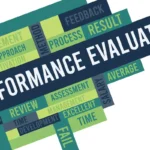Setting Effective Work Goals for Self-Evaluation: Key Strategies
Setting effective work goals is essential for self-evaluation. It helps you measure your performance, track progress, and identify areas for improvement. Here are some key strategies and examples to help you excel in your work goals.
Understand Your Objectives
Before setting any goals, take some time to reflect on what you want to achieve in your role. Understanding your objectives provides clarity and focus. Here are some questions to consider:
- What skills do I want to develop?
- What projects do I want to complete in the next quarter?
- How can I contribute more effectively to my team?
Clarifying your objectives will help you create targeted goals that support your overall career aspirations.
Make Your Goals SMART
Setting SMART goals is a proven method to ensure they are effective and achievable. SMART stands for:
- Specific: Clearly define what you want to achieve.
- Measurable: Determine how you will track progress.
- Achievable: Ensure your goals are realistic and attainable.
- Relevant: Align your goals with your long-term objectives.
- Time-bound: Set a deadline for completion.
For example, instead of saying “I want to improve my skills,” you might say, “I want to complete two online courses on project management by the end of the next quarter.” This gives you a clear roadmap to follow and a way to measure your success.
Daily and Weekly Goals
Breaking your annual goals into smaller, manageable tasks is crucial. Establish daily or weekly goals that align with your long-term objectives. This helps maintain motivation and keeps you on track. Consider the following:
- Daily Goal: Spend at least 30 minutes each day reviewing project management materials.
- Weekly Goal: Attend one networking event or workshop each week related to your field.
By making smaller goals, you can celebrate small victories, which boosts your confidence and keeps you moving forward.
Solicit Feedback Regularly
Feedback is a powerful tool for self-evaluation. Regularly ask for constructive feedback from your peers and managers to assess how well you’re meeting your goals. This can take various forms:
- One-on-one meetings with your supervisor.
- Anonymous surveys to teams about collaboration efforts.
- Regular performance reviews during evaluations.
Use the feedback to adjust your goals and strategies, ensuring you remain focused on your targeted areas of improvement.
Reflect and Adjust
Self-evaluation is an ongoing process. Take time to reflect on your progress regularly. Set aside time each month to review where you stand with your goals. Ask yourself:
- What have I accomplished so far?
- What challenges did I face?
- What can I do differently to achieve better results?
This reflection allows you to celebrate your achievements and identify any areas for growth. If something isn’t working, don’t hesitate to adjust your goals. Flexibility is essential for success and personal development.
Examples of Effective Work Goals
To give you an idea of how to implement these strategies, here are five effective examples of work-oriented self-evaluation goals:
- Enhance Communication Skills: Attend a weekly public speaking club to develop presentation skills over the next six months.
- Increase Productivity: Implement a time management system like the Pomodoro Technique in your daily routine for the next month.
- Expand Professional Network: Connect with three new industry professionals weekly on LinkedIn.
- Improve Project Management Skills: Take a certification course within the next four months while applying learned skills to current projects.
- Encourage Team Collaboration: Organize monthly brainstorming sessions to foster creativity and team input.
These examples offer a clear framework to work from, making it easier for you to tailor your goals to fit your career path.
Setting effective work goals for self-evaluation is crucial for career advancement. By understanding your objectives, making SMART goals, soliciting feedback, and reflecting regularly, you can create a powerful path toward professional growth. Remember, the journey begins with a simple decision to prioritize your goals and take actionable steps toward achieving them.
The Importance of Self-Reflection in Achieving Work Goals
Self-reflection plays a pivotal role in achieving your work goals. By taking the time to introspect, you can understand your strengths and weaknesses, which is essential for personal and professional growth. When you engage in self-reflection, you’re not just evaluating your past actions; you’re setting yourself up for future success. Here are some key points to consider when diving into self-reflection and how it can lead you toward achieving your work goals.
Understanding Your Goals
Before you can even begin to assess your progress, it’s vital to have a clear understanding of your work goals. Spend some time writing down your short-term and long-term goals. You may find it helpful to categorize them:
- Short-term Goals: These are typically objectives you aim to achieve within a few months. They could include finishing a project, improving your communication skills, or improving your yearly performance review.
- Long-term Goals: These might involve career milestones, such as obtaining a specific position, developing expertise in a certain area, or mastering a new skill set.
When you clarify your goals, self-reflection becomes more manageable. You can then assess what you’ve done to achieve these goals and what adjustments may be necessary.
Evaluate Your Progress
Self-reflection encourages you to regularly evaluate how far you’ve come. Set aside time each month to review your accomplishments. Ask yourself:
- What goals have I achieved?
- What obstacles have I faced?
- How did I handle those obstacles?
- What could I have done differently?
This evaluation helps you identify patterns in your work habits and decision-making processes. It will enable you to pinpoint where you excel and where you need improvement, setting the stage for enhanced future performance.
Boosting Motivation and Accountability
When you engage in self-reflection, you’re actively holding yourself accountable for reaching your goals. This sense of responsibility can lead to improved motivation. Here’s how:
- Recognizing Achievements: Acknowledging even small victories can propel you forward. Celebrate your accomplishments to create a positive feedback loop.
- Identifying Weaknesses: Self-reflection exposes areas needing improvement. Knowing where you lag can empower you to take specific actions to get back on track.
- Setting New Challenges: Once you’ve evaluated your progress, you can challenge yourself further. Ask yourself how you can stretch your capabilities.
When you visualize the path forward, you’re more likely to maintain your motivation and continue striving toward your objectives.
Enhancing Learning and Development
Another benefit of self-reflection is that it fosters continuous learning. The workplace is ever-changing, and the ability to adapt is crucial. Here are ways self-reflection can support learning:
- Promoting Self-Awareness: Understanding your emotional and intellectual responses allows you to handle workplace situations more effectively.
- Encouraging Lifelong Learning: Regular reflection invites curiosity. You may find yourself wanting to learn more, whether through training sessions or peer interactions.
- Fostering Collaboration: By understanding how you fit into a team, you can improve collaboration. Reflecting on team dynamics can help you adapt your approach for better teamwork.
Learning into your work life can accelerate your career and skill development, making your self-reflection practice invaluable.
Implementing Changes
Ultimately, the goal of self-reflection is to implement changes based on your insights. Taking action is crucial. Here are some steps:
- Set Specific Actionable Goals: Instead of vague resolutions, aim for clear, achievable goals. For example, “I want to improve my presentation skills” can be defined as “I will attend a public speaking workshop next month.”
- Track Your Actions: Keep a journal or use digital tools to monitor your efforts. Documenting your progress helps maintain accountability.
- Seek Feedback: Don’t hesitate to ask colleagues or mentors for input. Their perspectives can provide invaluable insights into your growth and areas you may overlook.
By continuously reflecting and acting on your insights, you can excel in your work goals and further your professional journey.
Self-reflection can serve as a strong foundation for achieving work goals. Engaging in this practice will not only help you evaluate your path but also motivate you, enhance learning, and set the stage for making necessary changes. Start reflecting today to see the difference it makes in your work life!

How to Measure Your Progress Towards Work Goals
Measuring your progress towards work goals is essential for personal and professional development. Understanding your advancement helps you stay motivated and can also showcase your achievements to your supervisors. Here’s how you can effectively measure your progress.
Set Clear Goals
Start with setting SMART goals. SMART stands for Specific, Measurable, Achievable, Relevant, and Time-bound. Each goal should give you a clear idea of what you want to accomplish and how to track it. Here’s how you can break it down:
- Specific: Clearly define what you want to achieve. Instead of saying “I want to improve sales,” you could say, “I want to increase sales by 20% in the next quarter.”
- Measurable: Ensure that you can track your progress. Using percentages or concrete numbers makes it easier to visualize.
- Achievable: Your goal should be realistic based on your current skills and resources.
- Relevant: Make sure your goal aligns with your overall career objectives and company vision.
- Time-bound: Set a deadline for when you want to achieve the goal to create urgency.
Track Your Progress Regularly
Establish a routine for tracking your progress. You can do this by:
- Weekly Check-ins: Dedicate time every week to review your progress. Did you meet your targets? If not, why?
- Monthly Reviews: Once a month, conduct a more in-depth analysis. This will help you identify patterns and areas for improvement.
- Documentation: Keep records of accomplishments, challenges, and any feedback you receive. This documentation can be beneficial when discussing your progress with your supervisor.
Use Metrics and KPIs
Identify metrics and key performance indicators (KPIs) relevant to your goals. This will help you quantify your progress. Consider the following:
- Sales Data: If your goal is related to sales, track your revenue against your set target.
- Performance Surveys: Get feedback from peers or clients to gauge your effectiveness.
- Project Completion Rates: If your goal involves completing projects, measure the number of projects finished within deadlines.
Reflect on Challenges and Adjust Your Strategy
Evaluating the challenges you face is crucial. Ask yourself:
- What obstacles have hindered my progress?
- What skills do I need to improve?
- Is my timeline realistic?
Adapting your approach as needed can significantly impact your progress. If something isn’t working, change your strategy. Being flexible is important.
Celebrate Your Achievements
Recognizing your successes, no matter how small, is essential for maintaining motivation. Here are some ways to celebrate:
- Reward Yourself: Treat yourself to something enjoyable, whether it’s a day off or a nice meal.
- Share Your Success: Share your achievements with colleagues and supervisors. This can enhance your professional profile.
- Reflect on Your Journey: Take time to think about how far you’ve come. Acknowledging your progress can boost your confidence.
By taking these steps, you can measure your progress towards work goals efficiently. Keeping your goals visible and regularly evaluating your advancement can help you stay on track and make adjustments as necessary, ensuring that you excel in your professional journey.
Remember, progress is not always a straight line. Ups and downs are normal, but how you respond to these challenges defines your ultimate success. Keep pushing towards your goals!
Overcoming Challenges in Reaching Your Work Goals
Reaching your work goals can often feel like climbing a mountain with unforeseen challenges along the way. Whether you’re aiming for a promotion, developing new skills, or completing a challenging project, obstacles are part of the journey. However, learning how to overcome these challenges can significantly increase your chances of success and satisfaction in your career.
One of the first steps in tackling difficulties is identifying them clearly. By understanding what stands in your way, you can create a targeted plan of action. Here are some common challenges you might face:
- Lack of Motivation: Even the most ambitious individuals occasionally feel uninspired.
- Time Management Issues: Juggling multiple tasks can lead to procrastination.
- Unclear Goals: Sometimes, you might not have a clear vision of what you want to achieve.
- Workplace Politics: Navigating relationships can be tricky and hinder progress.
- Skill Gaps: You may find yourself lacking the necessary skills to reach your goals.
Once you’ve pinpointed your challenges, you can develop effective strategies to overcome them. Start with the following techniques to enhance your ability to meet your work goals:
1. Set Specific and Measurable Goals
It’s crucial to define clear, achievable goals. Instead of vague aspirations like “I want to be better at my job,” develop specific objectives such as, “I want to complete a certification course in my field within the next three months.” This clarity not only helps in tracking progress but also boosts your motivation as you accomplish smaller milestones.
2. Create a Structured Plan
Once you set clear objectives, break them down into actionable steps. Create a timeline for each task and prioritize them. This structured approach helps in managing your workload effectively and minimizes feelings of being overwhelmed.
3. Seek Feedback and Support
Don’t hesitate to reach out to colleagues or supervisors for feedback. Constructive advice can provide valuable insights and help you adjust your strategies. Additionally, surrounding yourself with supportive peers creates a positive environment that fosters growth and accountability.
4. Cultivate a Positive Mindset
A positive mindset plays a vital role in overcoming challenges. Focus on your achievements, no matter how small, and remember to celebrate them. Practicing gratitude can shift your perspective from what you lack to what you have, enhancing your resilience to setbacks.
5. Invest in Skill Development
If you identify skill gaps, take the initiative to learn. Enroll in training programs, attend workshops, or utilize online courses. Bolstering your expertise not only empowers you to tackle your goals but also increases your confidence in the workplace.
While facing obstacles can be daunting, it’s essential to recognize that they are a natural part of professional growth. Each challenge presents an opportunity for learning and personal development. Adapting your approach and staying committed to your objectives will pay off as you become more adept at navigating your career path.
In addition to these strategies, consider incorporating regular self-evaluation into your routine. Take the time to assess your progress, reflect on challenges faced, and adapt your action plan accordingly. This practice can help you stay aligned with your goals and make informed decisions moving forward.
Remember that it’s okay to ask for help when you need it. Whether it’s reaching out to a mentor or joining a professional group, you don’t have to face challenges alone. Building a network can provide encouragement and solutions to hurdles you encounter.
By actively addressing challenges, setting clear goals, and developing a supportive network, you can excel in your work environment. Embrace the journey, learn from each experience, and watch as you grow into a more capable and confident professional.

Celebrating Achievements: The Role of Positive Reinforcement in Self-Evaluation
Self-evaluation is an essential part of personal and professional growth, allowing individuals to recognize their accomplishments and areas for improvement. One of the most effective ways to enhance self-evaluation is through positive reinforcement. This strategy not only boosts motivation but also encourages continuous development. Below, we explore how celebrating achievements can transform the self-evaluation process and support your goals.
Positive reinforcement involves acknowledging successes and rewarding oneself for reaching milestones. This practice can have profound effects on your mindset and overall performance. Here are several ways that positive reinforcement influences self-evaluation:
- Enhances Self-Awareness: Celebrating achievements helps you become more aware of your abilities and strengths. When you take the time to reflect on what you’ve done well, you solidify your understanding of your talents.
- Boosts Motivation: Recognizing your successes generates excitement and motivates you to strive for more. You become eager to set new goals and achieve them, creating a positive feedback loop.
- Builds Confidence: Acknowledging your achievements strengthens your self-belief. You learn to trust your abilities and feel more equipped to take on challenges in the future.
- Encourages Goal Setting: Celebrating milestones can guide you in setting meaningful next steps. When you know what you’ve accomplished, you can better define what you want to achieve moving forward.
- Promotes a Positive Mindset: Shifting your focus to what you’ve done right fosters a culture of positivity. A positive attitude is not just motivational; it can also affect workplace dynamics and collaboration.
It is important to incorporate specific methods of celebration to take full advantage of positive reinforcement. Here are some effective approaches:
- Keep a Success Journal: Write down daily or weekly achievements, no matter how small. This habit will create a tangible record of success to review whenever you need an extra boost.
- Share Achievements with Others: Sharing your successes with coworkers or friends can amplify happiness. Their acknowledgment signifies validation and often inspires others to celebrate their achievements too.
- Set Up Personal Rewards: Reward yourself after reaching significant milestones. This could range from taking a day off, indulging in a favorite treat, or enjoying a fun outing.
- Reflect on Achievements Regularly: Schedule time for self-reflection. Frequent reflection allows you to assess growth and recognize the progress made over time.
- Visualize Your Success: Create a vision board showcasing your achievements. A visual representation can serve as a constant reminder of what you’ve accomplished and motivate you on tough days.
Another significant aspect to consider is the role of constructive feedback in combination with positive reinforcement during self-evaluation. While celebrating successes, it’s equally vital to acknowledge areas that need improvement. Balancing both aspects ensures a well-rounded approach to personal growth. Engage in self-assessment by asking yourself questions like:
- What skills did I improve this week?
- What challenges did I overcome, and how did I do it?
- In what areas do I need to focus more effort?
- How can I leverage my strengths to tackle my weaknesses?
- What new techniques can I learn to enhance my skills further?
By integrating positive reinforcement into your self-evaluation framework, you can constructively assess your growth. The practice of celebrating achievements creates a cycle of motivation, enabling you to thrive in your personal and professional pursuits. As you recognize your progress, you’ll naturally find yourself inspired to aim higher and embrace opportunities for development. You possess the ability to craft a richer, more rewarding self-evaluation experience simply by choosing to celebrate your successes along the way.
Remember that everyone’s journey is unique. Your achievements may look different from someone else’s, and that’s perfectly okay. Embrace your individuality and give yourself permission to celebrate your journey. Through positive reinforcement, you can turn self-evaluation into a joyous occasion that continually propels you towards your goals.
Conclusion
Achieving your work goals is a journey that thrives on dedication, strategy, and self-awareness. By setting clear and effective objectives, you pave the way for meaningful self-evaluation. This process allows you to reflect on your ambitions and recognize your strengths and areas for improvement. Such self-reflection not only sharpens your focus but also motivates you to stay on track.
Measuring your progress is vital. Regular check-ins enable you to see how far you’ve come and to adjust your strategies as needed. This adaptability becomes essential, especially when you encounter challenges. Instead of letting obstacles deter you, viewing them as opportunities for growth fosters resilience and innovation in your problem-solving skills.
Once you’ve overcome these hurdles and reached your milestones, celebrating your achievements is crucial. Acknowledging your hard work and rewarding yourself with positive reinforcement can significantly boost your morale. This celebration makes the journey enjoyable and reinforces your commitment to continual growth.
Remember, the path to achieving work goals is not a straight line but a dynamic process filled with lessons and victories. By integrating these strategies, you not only enhance your ability to self-evaluate but also position yourself for ongoing success in your career. Embrace each step of the journey with gratitude and excitement, and watch as your professional life flourishes.










